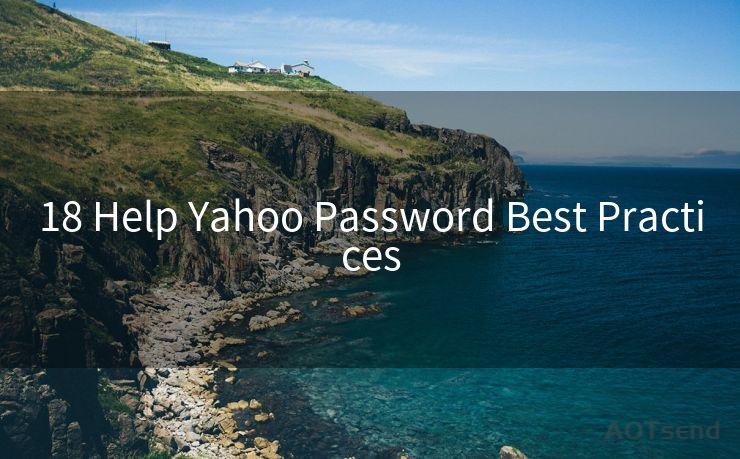18 Help Yahoo Password Best Practices




When it comes to online security, having a strong and secure password is crucial. Yahoo, as one of the oldest and most popular email services, is no exception. In this article, we'll explore 18 best practices for creating and managing your Yahoo password to ensure your account remains secure.
1. Use a Unique Password
Never reuse passwords across multiple accounts. If one account gets hacked, all your other accounts using the same password are at risk. Use a unique password for your Yahoo account to keep it safe.
2. Make It Long and Complex
A strong password should be at least 8 characters long, but 12 or more is ideal. Include a mix of uppercase letters, lowercase letters, numbers, and symbols to increase complexity.
3. Avoid Common Words and Phrases
Hackers often use dictionaries to guess passwords. Avoid using common words, phrases, or names that can be easily guessed.
4. Don't Use Personal Information
Your password should not contain any personal information such as your name, birthdate, or address. These details are often publicly available and can be used to guess your password.
5. Utilize Password Managers
With so many passwords to remember, it's tempting to use simple or repeated passwords. Password managers, like LastPass or 1Password, generate and store complex passwords for you, making it easier to maintain strong, unique passwords for each account.

6. Enable Two-Step Verification
Two-step verification adds an extra layer of security to your Yahoo account. When enabled, you'll need to provide an additional code, sent to your phone, to log in.
7. Change Your Password Regularly
Regularly updating your password reduces the risk of it being guessed or stolen. Set a reminder to change your password every few months.
8. Avoid Using Public Computers
Public computers, like those in libraries or internet cafes, may have keyloggers or other malware that can steal your password. Use your own trusted devices to access your Yahoo account.
9. Be Wary of Phishing Scams
Never click on links in emails asking you to verify or change your password, especially if they claim to be from Yahoo. These may be phishing scams designed to steal your credentials.
10. Don't Share Your Password
Your password is personal and should not be shared with anyone, even friends or family.
11. Use Yahoo's Account Key
Yahoo's Account Key feature allows you to log in without a password, using your smartphone instead. This adds an extra level of security by eliminating the need for a traditional password.
12. Monitor Your Account Activity
Regularly check your Yahoo account activity to ensure there are no unauthorized logins. Yahoo's security settings allow you to see recent login activity and devices used.
13. Consider Additional Security Questions
🔔🔔🔔
【AOTsend Email API】:AOTsend is a Managed Email Service for sending transactional emails. Support Email Types: reminders, authentication, confirmations, notifications, verification codes, invoices, password resets, account activations, billing statements, two-factor authentication (2FA), and one-time passwords (OTP) emails, etc. $0.28 per 1000 Emails. 99% Delivery, 98% Inbox Rate.
You might be interested in:
Why did we start the AOTsend project, Brand Story?
What is a Managed Email API, How it Works?
Best 25+ Email Marketing Platforms (Authority,Keywords&Traffic Comparison)
Best 24+ Email Marketing Service (Price, Pros&Cons Comparison)
Email APIs vs SMTP: How they Works, Any Difference?
Setting up security questions can help you recover your account if you forget your password. Make sure these questions and answers are not easily guessable.
14. Keep Your Software Updated
Outdated software can have security vulnerabilities. Keep your operating system, browser, and antivirus software up to date.
15. Use HTTPS
Always access your Yahoo account via HTTPS to ensure your connection is secure and encrypted.
16. Be Mindful of Public Wi-Fi
Public Wi-Fi networks can be insecure. Avoid accessing sensitive accounts, like Yahoo, on these networks unless you're using a VPN or other encryption methods.
17. Educate Yourself on Security Threats
Stay informed about the latest security threats and scams. Knowledge is power when it comes to protecting your online identity.
18. Act Quickly in Case of Breach
If you suspect your Yahoo account has been hacked or your password stolen, change your password immediately and contact Yahoo support.
By following these best practices, you can significantly reduce the risk of your Yahoo account being hacked or your personal information being stolen. Remember, security is an ongoing process, and staying vigilant is key to protecting your online identity.




Scan the QR code to access on your mobile device.
Copyright notice: This article is published by AotSend. Reproduction requires attribution.
Article Link:https://www.mailwot.com/p6803.html



